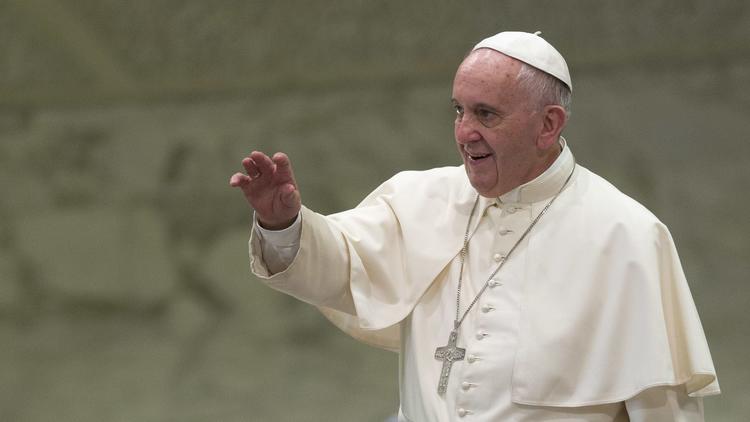Catholic Church Is in No Position to Lecture Others on Criminal Punishment
By Paul Muschick
Pope Francis made headlines last week by saying the Catholic Church would work to abolish the death penalty globally. The church should focus on cleaning up its own house before preaching to others how they should dish out punishment. The announcement from the Vatican about capital punishment came amid several national and international clergy sex abuse probes including a major one in Pennsylvania. The tug-of-war continues here over how much to release of a supposedly scandalous grand jury report that identifies more than 300 "predator priests" in six of the state's dioceses, including Allentown. The pope’s view on the death penalty wasn’t a surprise. Francis publicly has decried executions, and it’s not as if the church previously supported putting people to death. It taught that the death penalty was allowable only in very rare instances as a means of “defending human lives against the unjust aggressor." So I didn’t initially pay a whole lot of attention to what he had to say. I considered it to be a nuanced change and mostly wishful thinking. Surveys show a slight majority of Americans support the death penalty, as do a slight majority of Catholics. I believe murderers should be put to death for the most horrific crimes when the evidence is airtight and preferably when the crime is caught on video. But I thought about it again last weekend, after seeing the latest turn in the church’s sex abuse scandal in Pennsylvania. And I concluded the church isn’t in a position to be telling others how to apply justice. A court filing alleged Pennsylvania church leaders went all out to keep allegations of clergy sexual abuse against children from being investigated by law enforcement authorities or becoming public. That wasn’t a surprise, either. It still was sickening to see. “The main thing was not to help children, but to avoid ‘scandal,’’’ the court filing quoted the unreleased grand jury report as saying. “Several diocesan administrators, including the bishops, often dissuaded victims from reporting abuse to police, pressured law enforcement to terminate or avoid an investigation, or conducted their own deficient, biased investigation without reporting crimes against children to the proper authorities,” said the filing, which notes those statements are not specifically directed at Erie Bishop Donald Trautman, to settle his challenge to the grand jury report. Now, those allegations may be decades old. We don’t know because the state Supreme Court has not yet allowed the release of the nearly 900-page grand jury report. It is considering challenges from those who contend publishing allegations against them would destroy their reputations. At the least, a redacted version of the report was ordered by the court to be released by next week. Even if the alleged abuses in the report are ancient, there are plenty of recent allegations of church leaders not acting so saintly. In Chile, the national prosecutor’s office is investigating dozens of accusations of sexual abuse against bishops, clerics and lay workers. Reuters reported last week that church offices have been “raided” during the probe into whether church authorities “covered-up or failed to properly investigate abuse.” The report said the prosecutor’s office is investigating 38 accusations of sexual abuse against 73 bishops, clerics and lay workers involving 104 victims, most of whom were underage at the time of the alleged abuse. Sound familiar? If the church had dealt with this problem appropriately, there would be no need for a grand jury in Pennsylvania to spend two years investigating it. The Chile example isn’t the only one. Last week Pope Francis accepted the resignation of an Australian archbishop convicted of covering up the sexual abuse of children by a priest. He also recently accepted the resignation of a Honduran bishop accused of sexual misconduct with seminarians, and the resignation of a prominent cardinal from Washington, D.C., amid sex abuse claims. Church leaders, including the pope and bishops in Allentown and elsewhere in Pennsylvania, have denounced clergy sex abuse and any coverups. "God weeps, for the sexual abuse of children cannot be maintained in secret, and I commit to a careful oversight to ensure that youth are protected and that all responsible will be held accountable," Francis said during his visit to Philadelphia in 2015, where he met with a few victims. Talking no longer is good enough. These accusations have persisted too long. The church must police itself credibly first if it wants the world to seriously consider its opinion on how to punish criminals. Contact: paul.muschick@mcall.com
|
.
Any original material on these pages is copyright © BishopAccountability.org 2004. Reproduce freely with attribution.
